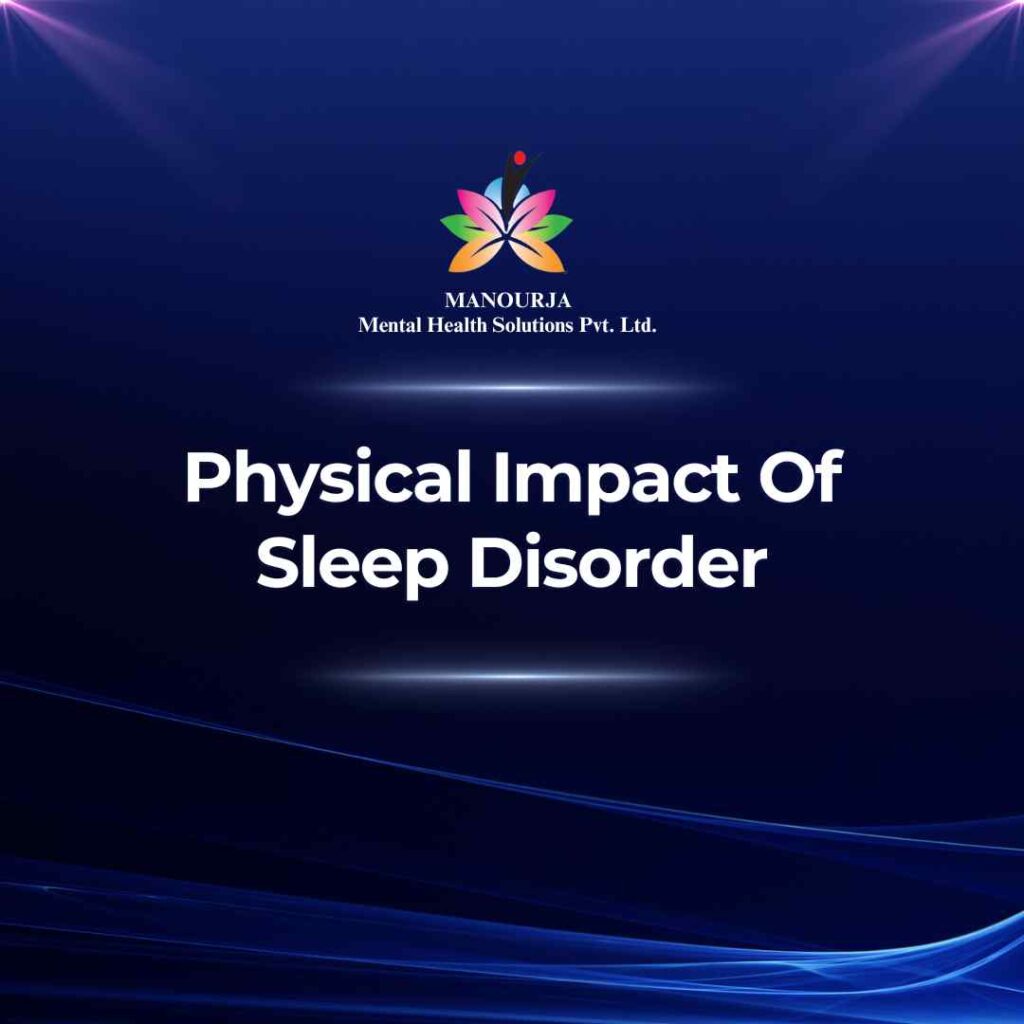Physical Impact of Sleep Disorder

Sleep disorders can have a significant physical impact on the body, affecting various systems and leading to both short-term and long-term health issues. Understanding these physical effects is crucial for recognizing the importance of addressing sleep problems. Here are several key aspects of how sleep disorders can impact physical health:
- Increased Risk of Cardiovascular Disease: Poor sleep quality and sleep deprivation have been linked to higher risks of heart disease, hypertension, stroke, and irregular heartbeats. The body undergoes important healing and regulatory processes during sleep, including blood pressure regulation and inflammation reduction.
- Weight Gain and Obesity: Sleep disorders can affect the hormones that regulate appetite, such as ghrelin and leptin, leading to increased hunger and appetite. This hormonal imbalance can make it more difficult to maintain a healthy weight, thus increasing the risk of obesity.
- Impaired Immune Function: Sleep is crucial for the proper functioning of the immune system. Lack of sleep can weaken immune defenses, increasing susceptibility to infections, and prolonging recovery times from illness.
- Endocrine and Metabolic Issues: Sleep helps regulate several metabolic processes, including glucose metabolism and conditions like type 2 diabetes. Chronic sleep disruption can lead to insulin resistance and an increased risk of developing metabolic syndrome.
- Reduced Physical Coordination and Increased Accident Risk: Sleep deprivation affects coordination, reaction times, and cognitive function, which can lead to increased risk of accidents, particularly when driving or operating heavy machinery.
- Hormonal Imbalance: Sleep affects hormone production, including hormones critical to growth, stress response, and reproduction. Disruptions in sleep can lead to imbalances that affect various bodily functions, from physical growth to fertility.
- Chronic Pain: Sleep disorders can exacerbate chronic pain issues, such as fibromyalgia, back pain, and headaches. Conversely, chronic pain can also make it more difficult to sleep, creating a worsening cycle of pain and sleep disturbances.
- Gastrointestinal Problems: Poor sleep can negatively affect the gastrointestinal system, potentially exacerbating conditions like gastroesophageal reflux disease (GERD) and irritable bowel syndrome (IBS).
- Poor Physical Recovery: During sleep, the body repairs itself from the day’s wear and tear. Without adequate sleep, this recovery process is hindered, affecting muscle growth, tissue repair, and overall physical recovery.
- Cognitive Decline: Over the long term, chronic sleep deprivation can contribute to cognitive decline and increase the risk of neurodegenerative diseases like Alzheimer’s disease.
Addressing sleep disorders is essential not only to improve quality of life but also to maintain physical health. Treatments can range from lifestyle changes and sleep hygiene practices to medical interventions, depending on the severity and nature of the disorder.
At MANOURJA, we believe in the transformative power of counseling. Our experienced therapists offer a safe and supportive space where you can explore your thoughts, emotions, and challenges. Through personalized counselling sessions, we’ll work together to develop coping strategies, build resilience, and achieve lasting positive change. Discover the path to a healthier, happier you with MANOURJA counselling services.
MANOURJA Rehabilitation Services
At MANOURJA, we’re dedicated to helping you in rebuild your life, after difficult times. Our rehabilitation services focus on understanding what you need to move forward, whether you’re recovering from addiction, trauma, or any psychological – social challenges. We create personalized plans, that are all about helping you, regain your strength and find hope again. With a caring team by your side, you’ll have the support to make real progress and take steps toward a brighter, healthier future.
